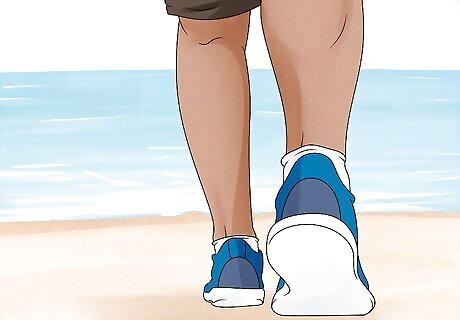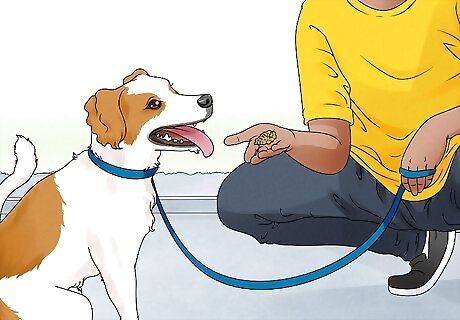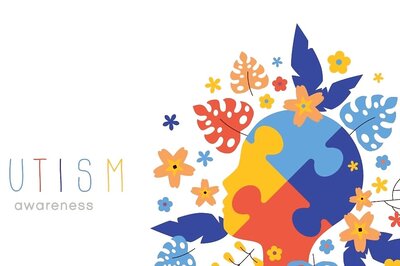
views
Improve your relationship with yourself.

Practice self-love and speak kindly to yourself. Showing yourself love and compassion can help ease feelings of loneliness and make it more enjoyable to be in your own company. Self-love can protect you from negative thoughts, raise your self-esteem, and help you change your perspective on alone time from negative to positive. Take a few minutes to check in with yourself and how you’re feeling. What are you thinking? What kinds of emotions are you feeling? Doing self-reflection like this can help you better understand yourself. Build a healthy inner dialogue with yourself. If you notice yourself using negative language to talk to yourself, make an effort to change those words into positive ones. Spend some time getting to know yourself. Ask yourself things like, “What are my core beliefs?” “What do I like and dislike?” and “What are some of my life goals?”
Limit your time on social media.

Log out of social media to avoid comparing yourself to others. While social media can be great for helping to connect with others, it’s also easy to start comparing yourself to others and feel bad about your own situation. It certainly doesn’t help that people usually only post the highlights of their lives, and such posts can actually make you feel more lonely and isolated. Take a break from social media for a few days or limit yourself to just one or two hours of use each day. When you are online, spend less time mindlessly scrolling and focus on meaningful conversations and positive interactions with people you know.
Remind yourself that it's okay to be alone.

Make alone time something to look forward to instead of fear. It’s more than possible to be alone without feeling lonely. The key is to change your negative thoughts about alone time into positive ones. Rather than saying, “I’m going to be so lonely,” tell yourself something like, “I get to relax and spend some time focusing on me.” Other benefits of alone time include: The freedom to daydream and be introspective The ability to do things your way without compromising More time to focus on your health and well-being More time to practice and develop your skills
Create a daily routine.

A set schedule can give you a sense of order and purpose. When you have a lot of time to yourself, it can be easy to feel a bit lost and unsure of what you’re supposed to do. Creating a schedule for yourself can help combat those feelings and add a bit of structure to your day. Schedule out regular daily activities, like work, exercise, or cooking, as well as hobbies and other fun activities. Be sure to also schedule time to see friends, family, and other people you’re close to. Seeing these meet-ups on your schedule can give you something to look forward to if you’re still getting used to spending time alone.
Learn something new.

Exploring new hobbies keeps your mind active and engaged. It’s normal to feel a bit empty and restless when you’re lonely. Throwing yourself into interesting new hobbies can help with that and make your alone time much more fun. Use this time to try something that you’ve wanted to do or learn more about a subject you’re interested in. Some things you might try include: Learning a new language Trying a new artistic hobby, like painting, drawing, or photography Crafting Gardening Writing or journaling
Go for a walk.

Spending time in nature can boost your mood. Even just a few minutes outside can do wonders to boost your mood and refresh your thoughts. Spending time in nature also gives you a chance to focus on your surroundings and distract yourself if you’re having any negative thoughts. Some other ways you can spend more time in nature include: Going for a run in the morning Exploring a nearby park or nature center Doing outdoor activities like fishing, canoeing, hiking, or camping
Spend time in public places.

Being in a place with lots of people can make you feel less lonely. Even though you may still be on your own, it can feel good just knowing that you’re surrounded by other people. For example, take a good book to a popular cafe, lounge in the sun at a neighborhood park, or eat lunch at a restaurant instead of alone in your house. You don’t need to completely isolate yourself to enjoy your alone time. It’s still completely possible to enjoy doing things on your own and be surrounded by other people.
Take yourself out on a date.

Treat yourself and do things you’ve always wanted to do. Alone time is great because you don’t have to compromise with another person. Instead, you get to put all of the focus on yourself and do the things you most want to do. Find fun activities that you think you’ll enjoy doing by yourself, and don’t be afraid to spoil yourself a bit. After all, you deserve it. Some things you might do include: Going to your favorite artist’s concert Visiting an art exhibition or museum that you’ve wanted to see Eating at a nice restaurant Taking a solo trip to a place you’ve wanted to visit
Adopt or foster a pet.

Pets can boost your mood and provide companionship. Caring for a pet can be a great way to fill up some of your time, and playing with your furry friend can help ease feelings of loneliness and reduce stress. Studies have also found that pet owners are less likely to suffer from depression and have improved cardiovascular health compared to those who don’t have a pet. If you’re unsure about adopting a pet right away, fostering through a local animal shelter can give you an idea of whether getting a pet is the right move for you. Aside from cats and dogs, other animals like snakes, lizards, hamsters, and birds are also great options for pets.
Volunteer in your community.

Giving your time and effort to help others eases loneliness. When you’re actively engaged and helping others, it’s hard to feel truly alone. And while you may start off volunteering by yourself, you might soon meet new people and make plenty of new friends. Look into volunteer opportunities like: Serving food at a soup kitchen Reading to the elderly in nursing homes Participating in disaster relief efforts Volunteering at an animal shelter Mentoring a young person in a Big Brother or Big Sister program
Get some work done.

Being alone can help you stay focused and be more productive. Some people work best when they’re left to their own devices since there aren’t as many distractions of interruptions. If you have some spare time to yourself, use it to get caught up on work or make some progress in a project you’ve been working on. Concentrating on work will also help keep your mind occupied and make time fly. To really get yourself in the zone, get rid of things that might distract you, such as by turning off notifications on your phone.
Exercise more often.

Regular exercise can ease loneliness and make you feel happier. Along with keeping you physically fit, exercising also causes your body to release chemicals in your brain that can make you feel happier and more relaxed. And when you’re happy, it’s harder to feel lonely. Exercising also gives you another way to fill up your alone time. Working out with others can offer even more mood-boosting benefits. Sign up for some fitness or yoga classes, or do your workouts in a public gym. Being surrounded by people can make you feel more connected, even if you don’t know them that well. In addition to working out, look after your physical health by eating healthy, staying hydrated, and getting at least 7 hours of quality sleep each night.
Explore mindfulness techniques.

Mindfulness exercises can help you feel calm and centered. Mindfulness is all about living in the moment and not allowing your thoughts to get caught up in the past or future. Studies have shown that mindfulness techniques can help to reduce feelings of loneliness and anxiety. Practicing mindfulness can also help you get more in touch with your innermost thoughts and feelings. Practice meditation, do some deep breathing exercises, try yoga to help clear your mind and focus your thoughts on the present moment.
Make a list of things you're grateful for.

Practicing gratitude can help curb feelings of loneliness. One of the most important things in learning to enjoy your time alone is keeping a positive mindset. Reminding yourself of everything good in your life can help you to start looking at things more positively and fight off any lonely feelings. One idea is to start a gratitude journal. Use this to practice gratitude by writing down 3-5 things you’re grateful for each day. Some things you might be grateful for include your family, friends, romantic partner, pets, and job.
Keep a journal.

Journaling lets you work through your thoughts and feelings. Regular journaling can help you get to know yourself better through self-expression. Write down your thoughts as they come to you, look for fun journal prompts on the internet, or explore deeper topics, like your dreams and worries. If you’re dealing with feelings of loneliness, write down what thoughts are going through your head and how your body feels. Then, read over what you wrote. Are there any patterns in your way of thinking? Are there actionable things you can do to address and change these thoughts and patterns?
Spend quality time with close friends or family.

Recognizing valuable relationships can help you feel less lonely. When you have to spend time on your own, it can be easy to slip into negative thoughts and tell yourself that you’re truly alone and have no one. That’s why it’s incredibly important to spend quality time with your loved ones and closest friends when you get the chance. If you feel secure about the connections in your life, you’re less likely to feel lonely when you’re at home or doing things by yourself. When you’re alone, focus on the positive memories you have with the people you love. Quality time is all about giving each other your full attention. Instead of doing passive activities like watching TV or scrolling on your phones, have a good face-to-face conversation, play a game, or go out and do something fun together.
Seek professional help if you’re struggling.

Therapy can help you feel heard and understood. If you still struggle with being on your own or feelings of loneliness after trying various exercises, it might help to talk to a therapist. They can provide you with a safe space to work through your thoughts and feelings and give you exercises to help you cope with these feelings. Loneliness can also be a symptom of a larger issue like depression. If you find yourself becoming increasingly lonely or not being able to tolerate being alone, it may benefit you to seek professional help.
Know the difference between being alone and being lonely.

Being alone can be a choice while loneliness is unwanted feelings of isolation. There are a lot of people who actively choose to be alone so that they can recharge and focus on themselves and their interests. Many people consider alone time to be a positive and beneficial thing. On the other hand, being lonely is when you feel disconnected and separated from others, and it can have negative effects on your mental health. If you’re feeling lonely, it’s important to acknowledge your loneliness so that you can start making changes to ease those feelings. Some people feel ashamed at the idea of being lonely, but just know that it’s a perfectly normal experience that a lot of people go through. To deal with feelings of loneliness, reach out to the people who love and care about you. Call them on the phone, send them a text, or make an effort to meet in person. And when you do meet, do your best to really engage with them so that you can better feel your connection.


















Comments
0 comment